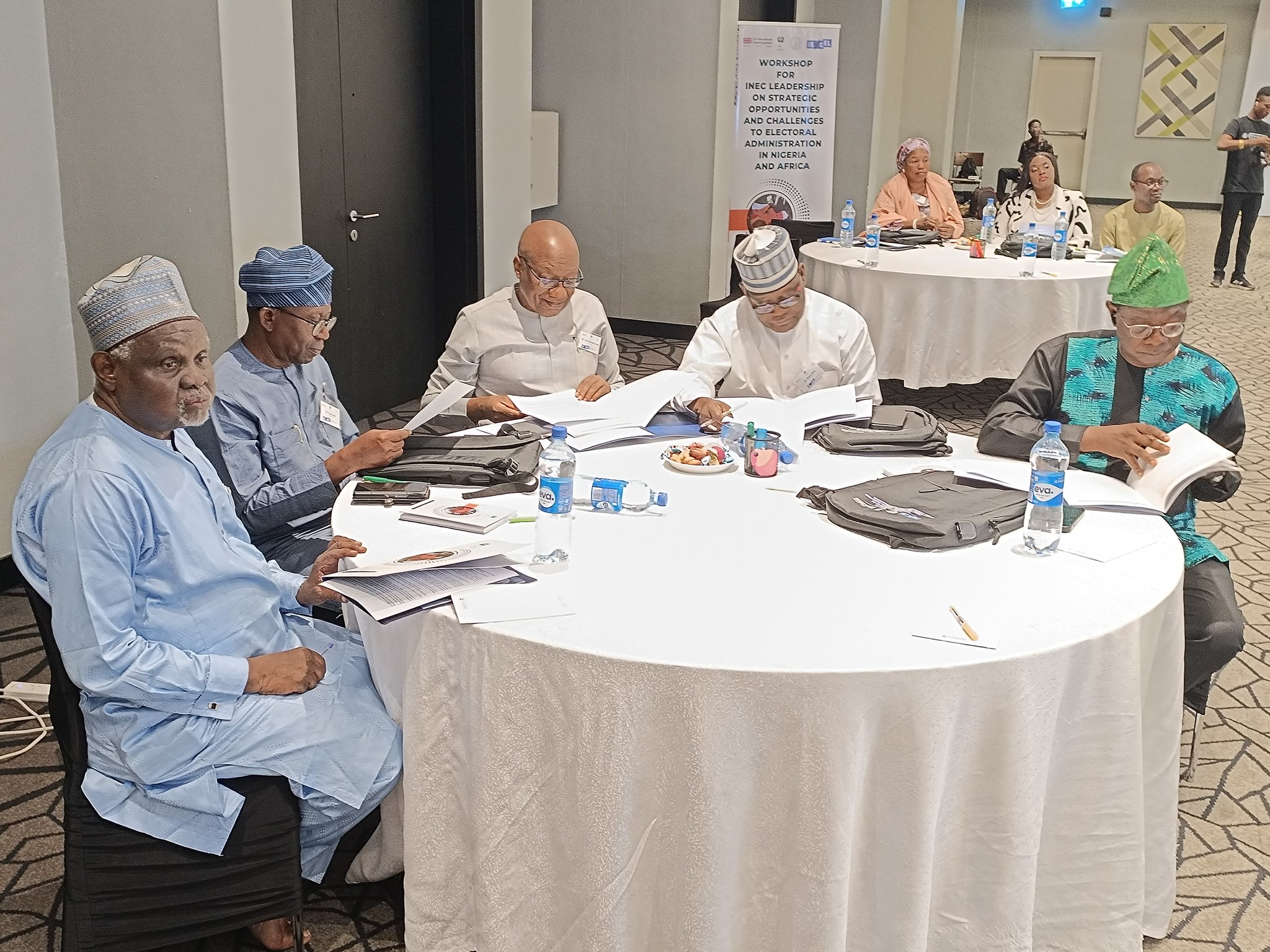
Akwa Ibom Governor Denies ₦700 Billion Fraud Allegations Against Predecessor Udom Emmanuel

Governor Umo Eno of Akwa Ibom State has distanced his administration from the ₦700 billion fraud allegations leveled against his immediate predecessor, Udom Emmanuel, by the Network against Corruption and Trafficking (NACAT). The allegations, currently under investigation by the Economic and Financial Crimes Commission (EFCC), have sparked controversy in the oil-rich South-South state.
Speaking at a town hall meeting in Abak on Saturday, Governor Eno condemned what he described as the vilification of past governors of Akwa Ibom State since the return to democracy in 1999. He dismissed the allegations as baseless and urged the public to disregard them.
Governor Eno’s Defense of Udom Emmanuel
Governor Eno expressed concern over the treatment of former leaders, stating that the consistent vilification of past governors could discourage current and future leaders from giving their best to the state.
“I don’t know where they get those figures from because it can’t be from Akwa Ibom State; it can’t be from us – we don’t have such figures,” Eno said. “I begin to feel that how we treat our leaders after they have put in all their efforts to serve can be very discouraging. We have done this consistently from Obong Attah, even the distinguished Senate President (Godswill Akpabio), we also vilified him; we went to EFCC. Now, we are doing it to Gov Udom Emmanuel.”
The governor emphasized that Udom Emmanuel served the state meritoriously and deserved respect and honor, not vilification.
“When a man has served his state meritoriously like Governor Udom Emmanuel did, honestly, he should be honored and respected. I don’t see a place for this kind of vilification that is going on; it is not correct – I don’t believe it should go on. It is not correct, it is not truthful, and we need to just dismiss it with a pinch of salt,” Eno added.
Background of the Allegations
The allegations against Udom Emmanuel surfaced after a petition accused the former governor of money laundering and diversion of funds during his tenure from May 2015 to May 2023. The petitioner claimed that Emmanuel received ₦3 trillion from the Federation Account over eight years but left a debt profile of ₦500 billion and unpaid ongoing projects worth ₦300 billion. Additionally, the former governor was accused of being unable to account for ₦700 billion.
On Tuesday, March 4, 2025, operatives of the EFCC detained Emmanuel for questioning over the allegations. The investigation has drawn significant attention, with stakeholders divided over the validity of the claims.
Implications for Governance and Leadership
Governor Eno warned that subjecting leaders to fraud probes after their tenure could discourage current officeholders from giving their best. He expressed concern that the trend of vilifying past leaders might deter individuals from taking on leadership roles in the future.
“I’m already expecting that it will happen to me, but what this does is to discourage leadership; it discourages you from giving your best, from burning out yourself because, at the end of the day, the people don’t show you that gratitude,” Eno said.
Calls for Fairness and Respect
Governor Eno called for a more respectful and appreciative approach to evaluating the contributions of past leaders. He urged the public to focus on the positive achievements of former governors rather than engaging in what he described as baseless accusations.
The governor’s remarks have sparked a broader debate about the treatment of public officials after their tenure and the need for accountability balanced with fairness and respect.
Looking Ahead
As the EFCC continues its investigation into the allegations against Udom Emmanuel, stakeholders are calling for transparency and due process to ensure that justice is served without undue vilification. The case highlights the challenges of balancing accountability with the need to honor the contributions of past leaders.
For now, Governor Eno’s defense of his predecessor underscores the importance of fostering a culture of respect and gratitude for public service while ensuring that allegations of misconduct are thoroughly and fairly investigated.





















